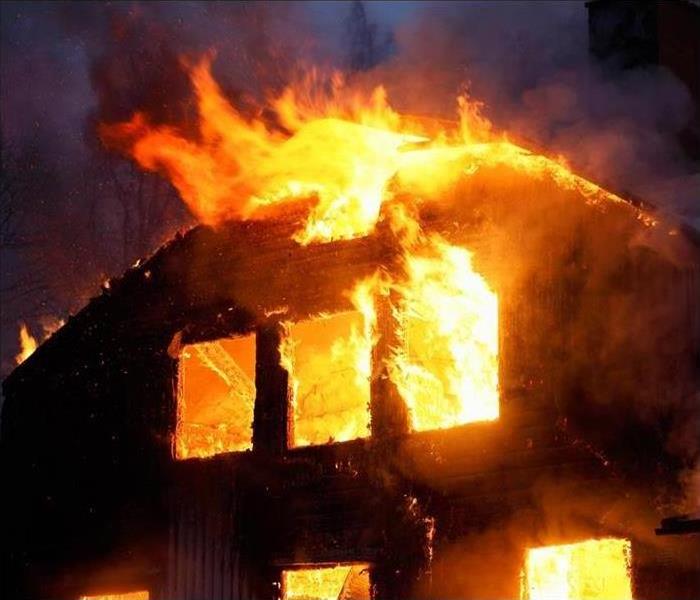3 Times When Fire Damage May Not Be Covered by Insurance
9/15/2022 (Permalink)
Property insurance usually provides coverage for damage caused by a home fire. However, there are circumstances where most property insurance policies will not cover the damage. These are three of the most common.
3 Most Common Times When Fire Damage May Not Be Covered by Insurance
- The Fire Was Deliberately Set by the Homeowner
Arson is a criminal act where someone deliberately sets fire to their own property or the property of another. Almost all insurance policies exclude coverage for intentional and criminal acts. If you or a member of your household deliberately set fire to your property, then your insurance company will probably deny the claim and you may face criminal prosecution. However, the insurance company has to be able to prove that the fire was started by arson.
- The Fire Was Caused by an Act of War
Most insurance companies also exclude coverage for damage from a home fire that occurs because of an act of war. Fortunately, there are few times when this exclusion would ever come into play. Actions that may be considered acts of war include insurrections, revolutions, invasions, military coups and terrorism. This exclusion exists because of the potential cost of claims and the difficulty involved in computing an appropriate premium to charge.
- The Property Is Vacant
Most insurance policies exclude damage caused by a vacant home fire if the fire was deliberately set. This is because policies exclude damage caused by vandalism or malicious mischief when a building has been vacant for more than 30 days before the loss. However, this provision is a topic of legal debate and whether your insurance company can exclude coverage for fire restoration largely depends on the legal interpretation of the courts in Black Forest, CO.
Most damage from a home fire is covered by property insurance; however, there are times when exclusions may apply. Your insurance company must be able to prove that the damage falls under one of the exclusion clauses in your policy to successfully deny a claim.



 24/7 Emergency Service
24/7 Emergency Service
